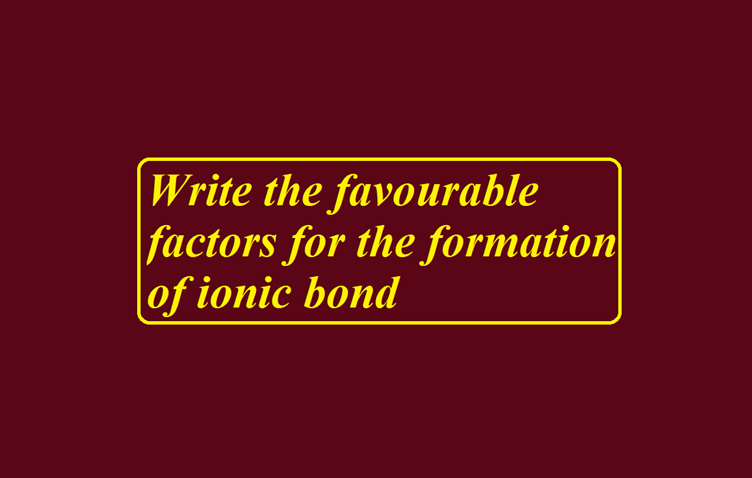Que. Write the favourable factors for the formation of ionic bond.
Ans. Factors that favour the formation of ionic bonds:
(i) Low ionization energy: In the formation of an ionic bond a metal atom loses electrons to form a cation. This process requires energy equal to ionization energy. Lesser the value of ionization, the greater will be the tendency of the atom to form a cation.
(ii) High electron affinity: The value of electron affinity gives the tendency of an atom to form an anion. The greater the value of electron affinity more will be the tendency of an atom to form an anion.
(iii) High lattice energy: The lattice energy should be high so that it overcomes the apparent deficit of energy of absorption, that is, sublimation energy, ionization energy, dissociation energy, and second affinity. The higher the lattice energy, the greater will be the ease of formation of the ionic compound.
The magnitude of lattice energy gives an idea about the interionic forces. It depends upon the following factors :
(a) Size of the ions: Smaller the size of the ions, the lesser the inter-nuclear distance. Consequently, the interionic attractions will be high and the lattice energy will also be large.
(b) Charge on the ions: Larger the magnitude of the charge on the ions, the greater will be the attractive forces between the ions. Consequently, the lattice energy will be high.
Write the favourable factors for the formation of ionic bond
For More Visit:



